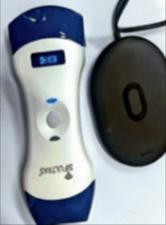A global trial for a portable ultrasound device that can help in fast breast cancer detection is now on progress in Kolkata’s IGPMER.

Kolkata: IGPMER is working on a new portable ultrasound device that can readily detect breast cancer. It is now in the trial stage. This trial is backed by WHO.
The device claims an early detection of breast cancer, which helps in the fast diagnosis of the disease. It will be really helpful for a country like India, where young women with denser breast tissues often go undiagnosed.
IPGMER is the first centre in the world where the trial was launched this April. Other three centres involved in this trial are named Malabar Cancer Centre in Thalassery, Kerala, and two undisclosed locations outside India, said experts at the IPGMER Breast Centre.
“We are conducting the trial on 70 women who have not been tested for breast cancer before,” said Diptendra Sarkar, head of IPGMER Breast Centre, who also heads the Indian collaboration for the trial. “The process is directly supervised by WHO and follows all their trial specifications and rules. The initial results are extremely encouraging, and we are looking ahead to perhaps the most significant breakthrough in breast cancer diagnosis. It will ensure instant screening and diagnosis at doorsteps and help save millions of lives.” The device on trial is six inches long and can be used by doctors for on-the-spot diagnosis.
It will surely make a difference in a country like India where conventional mammography failed to detect abnormal denser tissue in the young women.
Sub-types of breast cancer
These are basal and luminous. Basal type is hormone-independent and cannot be prevented through lifestyle alterations. It is mostly found among the age group of 40 to 48. On the other hand, Luminal type is a lethal form of cancer that usually leads to death. Luminal is more prevalent in the West, including the UK. It does not occur before the age of 55.
Recent reports say the rate of breast cancer is rising in Kolkata. Around 40 per 1 lakh women in the city are now afflicted with breast cancer, largely due to lifestyle reasons. Lack of early detection may make it worse in the upcoming five years. “More than half of the city’s female population in the 45-55 age group is the most vulnerable to breast cancer—and they are overweight,” said Subir Ganguly, oncologist at Medica Cancer Centre. “Excess fat produces oestrogens in the body, which is responsible for breast cancer.
Ganguly added that “urban, working women are also frequent users of hormonal drugs, which trigger the disease as well. They also tend to lead a sedentary life, which makes them vulnerable to the disease.”.
The IPGMER breast cancer kit trial represents a promising step forward in the fight against breast cancer. As the trial progresses, it will be essential to monitor its findings closely, with the hope that the kit could become a standard tool in breast cancer diagnostics, ultimately leading to a decline in breast cancer mortality rates. Hoping that the trial will finish in the early next year and the device will be presented at a global meet in Birmingham in May.





